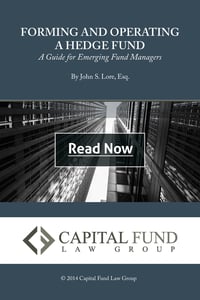Crypto-Asset US and Offshore Fund Structures
The structure of crypto-asset investment funds are driven by investment strategy goals, regulatory requirements, and tax considerations. The fund’s entity structure and allocation provisions aim to create efficiencies for fund managers and investors alike. For digital asset funds anticipating only US taxpayers, the fund vehicle is generally structured as a pass-through vehicle taxed as a partnership, either as a limited partnership or a limited liability company. However, as noted below, some crypto asset funds elect to trade through an offshore master-feeder or mini-master structure, regardless of whether the fund anticipates offshore investors.
US-Only Crypto-Hedge Fund Structure
A domestic-only hedge fund structure is typically comprised of the following entities:
- A limited partnership to act as the fund entity (although LLCs are increasing in popularity). The fund entity is formed in the state of Delaware, given the state’s strong judicial precedent;
- An LLC to act as the investment manager and general partner (GP) of the fund (managing member in the case of an LLC). The investment manager/GP entity is typically formed in the jurisdiction of the fund sponsor. In some cases the general partner and the investment manager are formed as two separate entities, such as when multiple funds are contemplated, or if the fund will be managed in New York City (for local tax reasons).
Investors become limited partners of the fund and all the trading activity of the fund takes place within the fund entity. The management fees and performance compensation are paid to the investment manager/GP, which is owned by the fund sponsors.
When to Use an Offshore Structure
There are three principal situations in which a digital asset fund should consider forming an offshore fund structure: (i) when anticipating non-us investors; (ii) when US tax exempt investors are involved and the fund anticipates using leverage; and (iii) when needed to facilitate transactions involving certain digital assets exchanges and issuers that prohibit direct US Investment.
-
-
Non-US Taxpayers:
If a hedge fund manager anticipates Non-US taxpayer participation, an appropriate offshore fund is needed to shield non-US taxpayers from US income tax liability. This is usually accomplished through a tax-neutral master-feeder fund or mini-master fund organized in a tax-neutral jurisdiction, such as the Cayman Islands. Likewise, an offshore feeder fund is organized as a limited partnership. Assets are traded at the master level, with US and Non-US taxpayers investing at the respective feeder levels. Managers may also elect to trade assets simultaneously using parallel structures.
-
US Tax Exempt Investors
An offshore structure should also be used to facilitate investment by US tax-exempt investors, such as pensions, endowments, and individual retirement accounts, which would otherwise be subject to Unrelated Business Taxable Income, to the extent the fund relies on leverage. Due to current regulatory uncertainties and the lack of sufficient custodial asset security, crypto asset funds are rarely suitable investments for institutional investors. -
Facilitation of Certain Exchange Participation
Various investment opportunities and exchange platforms currently prohibit US investment entities. A fund should carefully consider whether such platforms and investment opportunities permit US beneficial interest holders within an offshore investment, and more importantly, whether such a platform or investment opportunity is appropriately suited for US investors, given that the platform or investment is not designed for US investor participation.
For additional information on domestic and offshore hedge fund structuring considerations, please see our general “Domestic and Offshore Hedge Fund Structures” blog post, as well as the Capital Fund Law “Forming and Operating a Hedge Fund” eBook.
-
INSTRUCTIVE RESOURCES
Capital Fund Law Group has authored numerous investment fund publications, including instructive eBooks, white papers, blog posts, and sample offering document excerpts with illustrative footnotes. These complimentary downloads are dedicated to helping fund managers understand the legal fundamentals of launching and operating an investment fund.





